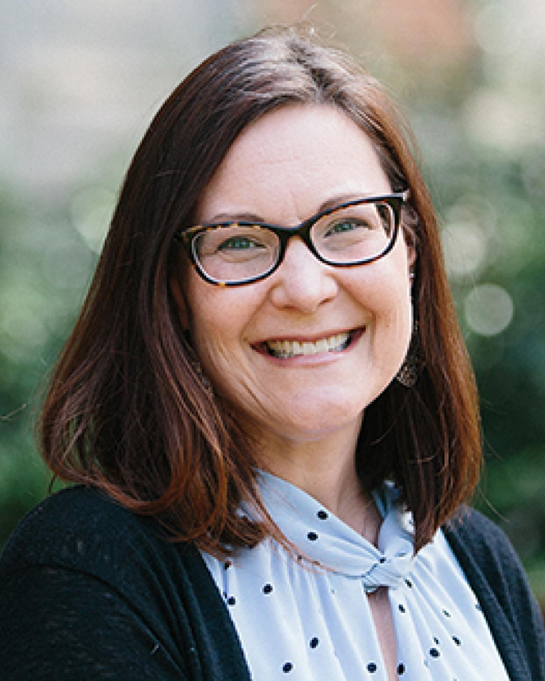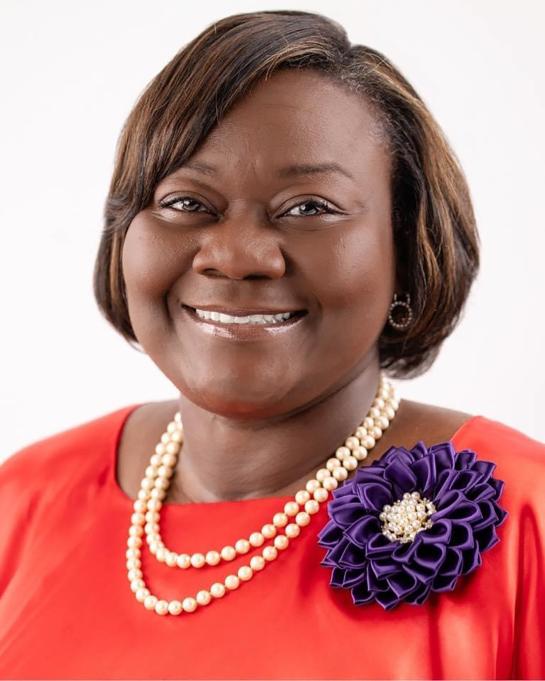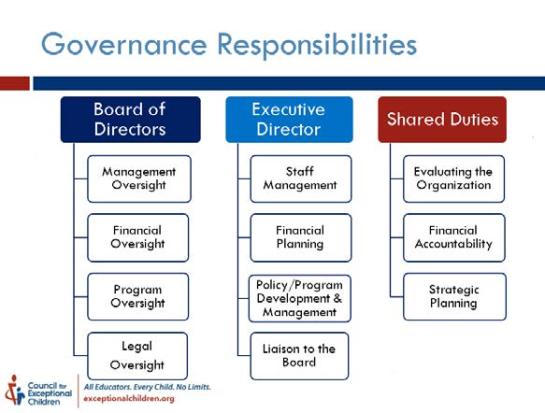Board of Directors

About the Board of Directors
The Council for Exceptional Children (CEC) is governed by a 16-member Board of Directors that includes four board-appointed officers: president, president-elect, immediate past president, and treasurer. All other Board members are elected by the membership and serve one four-year term (except for any Thought Leader that may be appointed by the board to serve from one to three years).
Through its fiduciary oversight, the Board is responsible for the financial health and well-being of the organization. The Board is also responsible for advancing CEC’s mission and strategic plan; ensuring adequate resources, compliance with the law, effective organizational planning; and oversight of the Executive Director.
See below for:
- Information about serving on the Board of Directors
- Board Briefs
- Meeting Minutes (past five years)
- CEC’s Past Presidents
2026 Board Members | ||||
|---|---|---|---|---|
Benjamin "Ben" Tillotson, M.Ed. | Concetta Lewis, Ed.S. | Julie Irene Bost, Ed.D. | David James Royer, PhD, BCBA | Chad Rummel, M.Ed., CAE |
2026 Members | ||||
|---|---|---|---|---|
Anna Marie Adl, M.S. | Precios Armstrong, Ed.D | Radha Bala, M.A. | Amy Braddock, M.S. | Jennifer A. Diliberto, Ph.D. |
Wendy Gonzales, Ph.D | Toni Mixon, Ph.D. | Adam Moore, Ph.D. | Wendy Otheim, Ed. S. | Ruby L. Owiny, Ph.D. |
Mabel Rivera | Zelphine Smith-Dixon, Ed.D.
| |||
Information About Serving on the Board of Directors
Every nonprofit strives to make a difference in the world and looks to its Board of Directors to lead the way by planning for its future, safeguarding its fiscal health, and monitoring its programs to ensure mission impact.
As a professional association of educators dedicated to cultivating, supporting, and empowering education professionals who work with individuals with disabilities, we seek a board with a diversity of experiences, perspectives and expertise committed to our core values of visionary thinking, inclusiveness and integrity. This will help ensure that CEC has the capacity to advance its mission, and serve its members and the field through: advocating for education professionals and for individuals with disabilities, and/or gifts and talents; advancing professional practice and scholarly research; promoting diversity, equity, inclusivity, and accessibility; and building networks, partnerships, and communities.
The board consists of 16 members including the four officers (specifically, the President, President Elect, Immediate Past President, and Treasurer). The term of office for members of the Board of Directors shall be three four years. The terms shall be staggered on a fixed-cycle basis according to an established schedule so that, as nearly as possible, one-third of the members are elected each year. The term of a director shall expire at the end of the period for which he or she was elected or appointed.
PLEASE NOTE: Members of the CEC Board of Directors may not serve in any member-elected position on a CEC Unit or Division Board (e.g., the governing body of the unit or division) or Committee while serving in their CEC Board role if there is more than one year left to their term. In addition, they may not serve on or chair any CEC committee, unless appointed as an ex-officio liaison by the CEC President. Members of the CEC Board may be asked by the President to serve on workgroups.
The Board of Directors is the sole governing body of the association, responsible for the ultimate direction of the organization and the management of its affairs. The board may:
- delegate authority to act on its behalf to others, such as committees or workgroups.
- remains legally responsible for any actions taken by any person or entity to whom it delegates authority.
- is responsible for policymaking, while employees are responsible for executing day-to-day operations and implementing board policy.
Directors have no inherent individual authority or power. Their authority and power is exercised collectively as a board. The Powers and Duties of the Board include:
- determining the organization’s mission and purposes and advocating for them
- selecting, supporting and evaluating the chief executive
- ensuring effective planning
- monitoring and strengthening programs and services
- protecting assets, providing financial oversight and ensuring adequate financial resources
- ensuring legal and ethical integrity
- enhancing the organization’s public standing
The Board has three in-person meetings per year and some virtual meetings. One of the in-person meetings is held at CEC's annual convention; one in conjunction with the Special Education Legislative Summit and Leadership Institute (typically in July), and one in November (typically the first or second weekend). In order to attend the board meeting during the Convention, the registration fee is paid by CEC. Board members are expected to attend the Board meeting on the first day of the convention, as well as the Representative Assembly (RA) meeting, held on the afternoon of the next to the last day of the convention, with other responsibilities throughout the Convention.
Reimbursable expenses incurred to attend Board meetings include transportation to/from the meeting (airfare/train and transportation to/from airport and hotel), as well as parking/tolls/mileage if driving, and any baggage check fees. Per diem is provided for meals not included. Discretionary local transportation is not reimbursable. Teachers serving on the board are reimbursed for substitute teachers, if needed, to attend official meetings of the Board. In order to attend the board and Representative Assembly meetings at the Convention, the registration fee is covered by CEC.
Service on the Board of Directors is not compensated.
It is CEC’s policy (board-approved 9-13-2018) that, in discharging his/her duties and responsibilities and responsibilities, each individual board member is expected to:
- promote and protect the interests of the association
- represent the best interests of the membership in board dialogue and deliberations
- uphold the board’s and board member fiduciary responsibilities (the duties of loyalty, care and obedience)
- sign an annual conflict-of-interest disclosure and update it during the year if necessary, as well as disclose potential conflicts before meetings and actual conflicts during meetings
- follow the organization’s bylaws, policies, code of conduct, operational guidelines and standing rules
- not disclose information that is deemed confidential
- know the organization’s mission, programs, product lines and services
- understand the strategic plan and the needs of the organization
- leverage connections, networks, and resources to help achieve the organization’s mission
- support and protect a leadership culture that values all aspects of diversity
- actively help with board succession planning by identifying well-qualified and diverse potential leaders to strengthen the leadership pipeline
- prepare for, attend, and conscientiously participate in board and Representative Assembly meetings
- commit to learning about issues before the board
- commit to working effectively within a collective decision-making body
- be actively involved in deliberations and ask clarifying questions
- respect the opinions of other board members
- faithfully read and understand the organization’s financial statements and otherwise help the board to fulfill its fiduciary responsibility
- make data-driven decisions based on information rather than opinion
- I agree that as a member of the board, it will be my job to support the mission of CEC.
- I will agree to attend board meetings regularly, be well-prepared and do my best to provide valuable input.
- I will serve in a professional manner.
- I will collaborate at meetings through offering information and resources and participating in all discussion.
- I will treat members of the board with respect, valuing all opinions.
- I will support all decisions put forth by the board and promoted by the organization.
- Board communications should always be considered confidential and not shared unless authorized by the President. I will adhere to board communication policies.
- I understand that if I fail to attend more than three of the scheduled meetings (without cause, as determined by the President), I may be asked to step down. A member of the Board of Directors may be removed by a majority vote of the Board of Directors.
- If I am unable or unwilling to abide by these terms, I will advise the President.
The CEC Board of Directors (Board) is accountable and responsible to the CEC membership. The Board operates in a professional manner, ensuring that an issue is fully discussed before action is taken. The Board of Directors is not a forum for putting forward an individual agenda. The processes described below are designed to ensure that the Board's management of CEC is consistent, follows adopted action, and is accountable to the CEC membership.
The Board evaluates each resolution, motion, or proposal within the parameters of the CEC strategic plan, the adopted program plan and budget, and other relevant information provided to help inform the final decision. The Board bases decisions on consideration of a) member needs, b) strategic direction of the organization, c) budget implications, and d) external marketplace dynamics and realities.
The Board operations are dictated by the following guidelines:
- Members of the Board receive meeting materials in reasonable time to prepare for discussion.
- It is expected that Board members will have read the materials provided and be fully prepared to contribute meaningfully to the discussion.
- Board members should make every effort to ask clarifying questions prior to a meeting or conference call.
- The Board openly discusses all sides of an issue before voting. Unanimity is not a goal. However, once voting has taken place, Board members will support the decision and work toward achieving the goal(s) of the decision.
- Each member of the Board is an equal partner in the operation of the Board. Therefore, Board members must recognize the autonomy of other individual Board members and respect the right of each to independent thinking and expression of opinions. Board members shall respect each other’s' right to vote aye, nay or abstain.
Robert’s Rules of Order, Newly Revised (Latest Edition) governs all official proceedings of the CEC Board of Directors. In addition, the following Standing Rules shall also be used:
- The agenda for each Board meeting and all accompanying information will be sent to the Board at as soon as possible prior to each meeting.
- Agenda items presented to the Board for action shall include the necessary background information, budgetary consideration(s), and administrative implications.
- Board members may place items on the agenda by submitting the request with accompanying support material to the President. If the issue and/or the supporting material was not available prior to the meeting, the item may be placed on the agenda at the meeting during “Adoption of Agenda” and will be placed under “New Business.”
- The Agenda may include consent and time ordered items.
- For all agenda items needing action, a motion will include the specific action to be taken, timelines for the action, responsibility for the action required, and any associated budget implications.
- If the majority of the Directors agree that insufficient information is available concerning a particular agenda item, action on the item can be deferred. In addition, the Chair may rule that insufficient information has been made available. If this ruling has been made, the agenda item can be withdrawn as an action or discussion item.
- To speak to an issue, the Director shall raise a hand and wait to be recognized by the Chair before addressing the Board.
- No Director may speak more than once on an issue under discussion until all other Directors who wish to speak on the issue have had that opportunity. However, a Director who has spoken on an issue can be recognized by the Chair to speak again before others if the Director needs to provide clarification or information requested by a previous speaker. The Director can be recognized for this purpose by stating “point of clarification.”
- Discussion on motions can be limited to a specific period of time as designated by the Chair.
- The Chair can recognize other individuals, including CEC staff, to provide information or clarification on items before the Board.
- Each Director shall have one vote on each motion. The vote of each Director by name shall be recorded in the minutes of the meeting.
- Members of the Board shall act on items in the best interest of CEC as a total organization.
- When an agenda item poses a conflict of interest for a Director, the Director must recuse him/herself from the discussion and action on the item. This recusal will be noted in the minutes.
- The Board of Directors may accept, reject, modify, or refer to other bodies reports received from the RA, committees, workgroups, or other entities.
- The Board of Directors may refer items to the Representative Assembly, standing/advisory committees, ad hoc workgroups of the Board, workgroups, and/or CEC entities.
- The Board of Directors may address issues as a committee of the whole or as subcommittees of the Board. Subcommittee members may be determined through a call for volunteers, appointment by the Chair, or through selection by the Board of Directors.
- Business of the Board can be conducted through a variety of modes of communication.
- Actions taken at meetings shall be distributed through the office of the President or Executive Director to CEC members, units and divisions, and other relevant CEC entities. Individual Board Members shall not report out actions from meetings to particular constituent groups within CEC without prior consent from the President.
CEC is a professional association whose members dedicate time and effort to advancing its mission. It is governed by the Board of Directors (BoD). CEC places great importance on ensuring the continued confidence and trust of its members stakeholders and the public at large. Accordingly, CEC requires that any action taken by members of its Board of Directors be free from even the appearance of impropriety or conflict of interest. CEC prohibits any board member from participating in any decision-making or approval of any ventures or activities that are sanctioned or sponsored by CEC and for which such individual may gain an economic benefit.
“Economic Benefit” is defined as any activity that provides personal gain for the individual and members of his/her immediate family.
Before recusing him/herself from the decision-making process, a board member must fully disclose any and all economic benefit that the individual may expect to receive as a result of the venture or activity and must provide CEC’s Executive Director and President with full copies of any related contracts, agreements, or other documents with third parties.
This Code of Ethics and Conduct (Code) provides policies and guidelines to be followed by all members of the BoD. This Code reflects the values to which CEC is committed on behalf of its members, stakeholders and the profession. The intent of this Code is that each member of the BoD will serve with integrity and conduct CEC’s business with the best interests of CEC and its members in mind. It is expected that all board members will follow this Code.
Privileged and confidential information should not be disclosed without the consent of all parties involved. All information discussed and shared during any business meeting of the BoD, or otherwise obtained through affiliation with CEC, shall be considered confidential and not shared or discussed outside of the meeting without prior consent of the President and Executive Director. All information discussed or shared during executive session is always confidential. This policy is not intended to prevent disclosure where required by law.
A board member has no authority to speak or act for the BoD, unless specifically requested by the President or Executive Director, other than to support official actions.
At the end of a board member’s term, he/she shall properly destroy all documents, papers, and other materials, that may contain confidential information. Failure to adhere to this policy will result in discipline, up to and including separation from CEC.
By December 31st of each year, each board member shall complete and submit to the President a Conflict of Interest Disclosure Statement for the coming year. If any conflict of interest should arise as to a transaction or business to be considered by the Board after submitting the annual form, a disclosure shall be made at that time.
Board members must disclose any and all conflicts of interests they may have related to a transaction or business to be considered by the board, before or at the time of consideration, and prior to any vote, in accordance with CEC policy.
A conflict of interest is when a member of the CEC Board of Directors has a direct (i.e., employee, owner, co-owner) or indirect personal interest in the matter. A “personal interest” includes both financial and nonfinancial relationships that could reasonably be expected to affect a board member’s ability to act solely in the best interests of CEC, its members and its tax‐exempt status. For purposes of this Policy, a Board member (including his/her spouse or lineal descendent) has an indirect personal interest in a transaction if: (i) another entity in which he or she has a material financial interest or in which he or she is a general partner, manager or greater than 5% shareholder is a party to the transaction; or (ii) another entity of which he or she is a director, officer or trustee is a party to the transaction and the transaction is or should be considered by the CEC Board. A conflict of interest transaction is authorized, approved, or ratified if it receives the affirmative vote of a majority of the directors on the Board who have no direct or indirect personal interest in the transaction. The presence of, or a vote cast by, a Board member with a direct or indirect personal interest in the transaction does not affect the validity of any action taken if the transaction is otherwise authorized, approved or ratified as provided above.
A direct or indirect personal interest by a board member’s immediate family* may also constitute a conflict of interest.
* spouse, child, stepchild, parent, stepparent, sibling, stepsibling or any person whose relationship with the board member is similar to that of persons who are related by blood or marriage
Failure to disclose a direct or indirect personal interest may result in removal from the CEC Board of Directors.
In addition, a board member shall not engage or participate in any outside activity, employment or affiliation that would constitute an actual or apparent conflict of interest without first disclosing such to the President and Executive Director and obtaining the consent of the Board.
Board members must avoid situations that might lead to conflict, or suspicion of a conflict, between a personal or self‐interest and their fiduciary duties to CEC. Should a Board member be unsure or become personally involved in any matter that may violate the requirements or spirit of this policy, he/she must contact the CEC President and Executive Director in writing.
After appropriate disclosures are made, the BoD shall determine if the actions or affiliations conflict with the interests of CEC. If a board member is compromised by a conflict of interest or fails to disclose an actual or potential conflict of interest, the board member may be removed.
If a board member has knowledge that another board member has a conflict of interest, he/she is expected to report this matter to the President and Executive Director.
- I recognize that I owe duties of care, loyalty and obedience to CEC.
- One aspect of fulfilling those duties is to avoid conflicts of interest in which my allegiance might be split between CEC responsibilities and some other professional, business or volunteer position or responsibility. To help avoid conflicts, I am disclosing situations or areas in which it might appear that I (or members of my immediate family) have conflicting duties to other entities. I invite any further review by CEC of any aspects of these situations or areas that might be considered appropriate. I will take other steps, such as avoiding deliberation of certain issues, if it is determined that those steps are necessary to protect against legal liability to CEC or to me personally arising from conflicts of interest.
- Please disclose any of the following. If none, write none.
- Professional, business or volunteer positions (including within other CEC entities), responsibilities, or affiliations that might give rise to conflicts:
- Situation(s) in which I (or members of my immediate family) am a vendor, or am employed by or consulting with a vendor and/or affiliate of CEC:
- Other potential conflicts:
The primary fiduciary duty of each board member is to act and exercise his/her judgment in a prudent manner solely in the best interests of CEC and its members in performing his/her responsibilities. This includes taking the steps and exercising the diligence necessary to actively participate in an informed manner in board discussions and decision‐making. All board members shall be committed to and uphold CEC’s mission, bylaws, policies, rules and regulations.
It is expected that board members will make informed decisions within the regulations and policies of the organization and which are in the best interests of CEC and its members, based on, but not limited to: available facts, information provided in the annual budget and financial reports, the Strategic Plan, and reports from the president, the executive director, and senior staff about the operation of the organization.
In addition, members of the board will take reasonable steps to promote and support CEC’s mission by:
- monitoring the management of the organization;
- supporting policies that improve educational, vocational, and social outcomes for all individuals with exceptionalities.
- promoting high professional standards; and
- ensuring programs and actions are consistent with the mission and policies of CEC and all reports relating thereto have full and accurate disclosure.
Board Briefs
Board Briefs are summaries of decisions and actions of the CEC Board of Directors. Full meeting minutes can be found below this section.
Meeting Minutes (last five years)
- Meeting Minutes, July 2025
- Meeting Minutes, May 2025
- Meeting Minutes, April 2025
- Meeting Minutes, March 2025
- Meeting Minutes, February 2025
- Meeting Minutes, November 2024
- Meeting Minutes, August 2024
- Meeting Minutes, June 2024
- Online Voting Minutes, April 2024
- Meeting Minutes, March 2024
- Meeting Minutes, January 2024
- Online Voting Minutes, February 2024
- Online Voting Minutes, December 2023
- Meeting Minutes, November 2023
- Online Voting Minutes September 2023
- Meeting Minutes July 6-7, 2023
- Online Voting Minutes, April - June, 2023
- Meeting Minutes May 24, 2023
- Meeting Minutes March 1, 2023
- Meeting Minutes January 24, 2023
- Meeting Minutes November 5-6, 2022
- Online Voting Minutes, August/September 2022
- Meeting Minutes, July 20, 2022
- Meeting Minutes, July 13-14, 2022
- Online Voting Minutes, July 2022
- Online Voting Minutes, June 2022
- Online Voting Minutes, May 2022
- Meeting Minutes, April 19, 2022
- Meeting Minutes, April 9-10, 2022
- Online Voting Minutes, February 2022
- Meeting Minutes, January 15, 2022
- Online Voting Minutes, December 2021
- Meeting Minutes, November 6-7, 2021
- Online Voting Minutes, September 2021
- Meeting Minutes, July 11-14, 2021
- Meeting Minutes, May 12, 2021
- Meeting Minutes, April 17, 2021
- Online Voting Minutes - March 2021
CEC Past Presidents
Since the inception of the Council for Exceptional Children in 1922, these dedicated special education professionals have contributed their time, passion, knowledge, and expertise to guide the Association’s ongoing efforts to support individuals with disabilities and the professionals who serve them. We are proud to recognize our past presidents.
| Kareem L. Thompson | 2024 |
| Andrea “Angie” Jasper | 2023 |
| Danielle M. Kovach | 2022 |
| Dennis Cavitt | 2021 |
| Jennifer L. Lesh | 2020 |
| Mary Lynn Boscardin | Nov. 2018 - 2019 |
| Laurie VanderPloeg | Jan. - Nov. 2018 |
| Mikki Gracia | 2017 |
| Antonis Katsiyannis | 2016 |
| James P. Heiden | 2015 |
| Robin D. Brewer | 2014 |
| Christy A. Chambers | 2013 |
| Margaret McLaughlin | 2012 |
| Marilyn Friend | 2011 |
| Jacqueline L. Mault | 2010 |
| Susan A. Fowler | 2009 |
| Kathleen Puckett | 2008 |
| Mary Ruth Coleman | 2007 |
| Jamie Hopkins | 2006 |
| Jim McCormick | 2005 |
| Suzanne Martin | 2004 |
| Janet Burdick | 2002-2003 |
| Jacquelyn Alexander | 2001-2002 |
| Helen Bogie | 2000-2001 |
| William K. Bogdan | 1999-2000 |
| Gerald J. Renaud | 1998-1999 |
| Linda S. Marsal | 1997-1998 |
| Gerald J. Hime | 1996-1997 |
| Diane L. Johnson | 1995-1996 |
| Pamela K. Gillet | 1994-1995 |
| Suana L. Wessendorf | 1993-1994 |
| Alba A. Ortiz | 1992-1993 |
| Joni Alberg | 1990-1991 |
| Harry Dahl | 1989-1990 |
| William R. Littlejohn | 1988-1989 |
| Charles M. Heuchert | 1989-1988 |
| Judy Dale | 1986-1987 |
| Michael K. Grimes | 1985-1986 |
| Joseph P. Gaughan | 1984-1985 |
| Lyndal M. Bullock | 1982-1984 |
| Jo Thomason | 1981-1982 |
| William E. Johnson | 1980-1981 |
| Kenneth Wyatt | 1979-1980 |
| D. Parthenia Cogdell | 1978-1979 |
| Harold Perry | 1976-1978 |
| Jasper E. Harvey | 1976-1977 |
| Phillip R. Jones | 1975-1976 |
| Raphael F. Simches | 1974-1975 |
| Jack C. Dinger | 1973-1974 |
| Stella A. Edwards | 1972-1973 |
| Jean R. Hebeler | 1971-1972 |
| Samuel C. Ashcroft | 1970-1971 |
| John Melcher | 1969-1970 |
| John W. Kidd | 1968-1969 |
| Leo Connor | 1967-1970 |
| Ernest P. Willenber & James J. Gallagher |
1966-1967 |
| Maynard C. Reynolds | 1965-1966 |
| Harrie M. Selznick | 1964-1965 |
| Mamie Jo Jones | 1962-1963 |
| Leo F. Cain | 1961-1962 |
| Jack W. Birch | 1960-1961 |
| Lloyd M. Dunn | 1958-1959 |
| Maurice H. Fouracre | 1957-1958 |
| Elizabeth M. Kelly | 1956-1957 |
| Francis E. Lord | 1955-1956 |
| Richard S. Dabney | 1954-1955 |
| Francis W. Doyle | 1953-1954 |
| William M. Cruickshank | 1952-1953 |
| John W. Tenny | 1951-1952 |
| Wallace J. Finch | 1950-1951 |
| Arthur S. Hill | 1949-1950 |
| Ray Graham | 1948-1949 |
| Harley Z. Wooden | 1947-1948 |
| Florence Dunlop | 1945-1947 |
| John J. Lee | 1942-1945 |
| Samuel A. Kirk | 1941-1942 |
| Dorothy E. Norris | 1939-1941 |
| Edward H. Stulken | 1937-1939 |
| Harry J. Baker | 1935-1937 |
| G. Elmore Reaman | 1934-1935 |
| May E. Burne | 1933-1934 |
| I. Grace Ball | 1932-1933 |
| Charles Scott Berry | 1931-1932 |
| Meta L. Anderson | 1930-1931 |
| John Louis Horn | 1929-1930 |
| Edith L. Groves | 1928-1929 |
| Charles M. Elliott | 1927-1928 |
| Alice B. Metzner | 1926-1927 |
| Elizabeth Farrell | 1922-1926 |
















